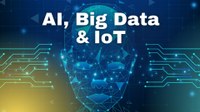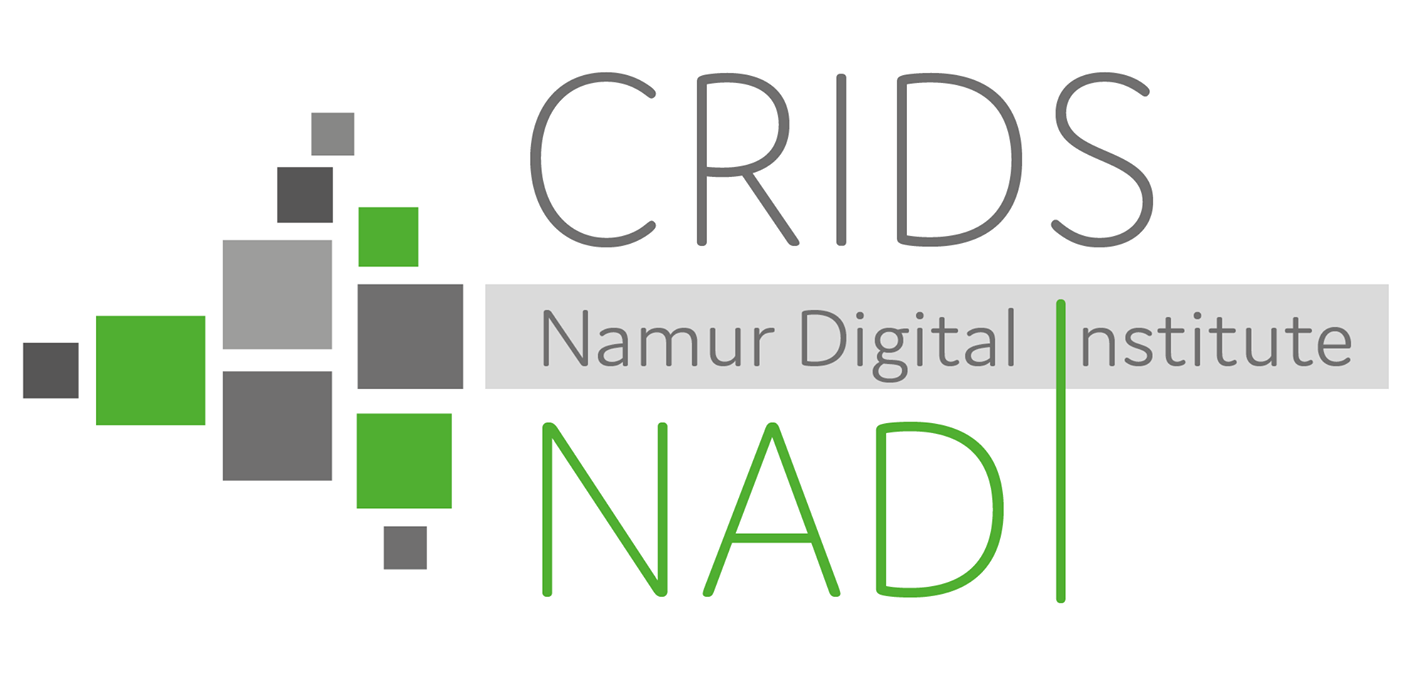Artificial Intelligence, Big Data & IoT
Video clips on the AI Act
The AI Act, adopted at EU level after harsh negotiations, was published in the Official Journal in the summer 2024. Since, a first set of its dispositions already entered into application: the provisions on the scope of, and notions defined by, the Act; as well as those on AI literacy, and on prohibited AI practices.
The Regulation is highly complex, while its significance and consequences might rival those of the GDPR. In essence, it provides a first legal definition of “AI systems” and “General-Purpose AI models” and regulates them based on the level of risk that they generate. Its material provisions contain fairly technical requirements and mix transversal and sectoral regulatory approaches. The Regulation also sets an enforcement framework, with heavy sanctions that can be imposed, and an impressive number of enforcement authorities.
Our team of experts, at CRIDS, decided to delve into this topic head-on, through a project of long-form videos, named "11 shades of AI Act" (in English, with French subtitles). They detail the major aspects of the Regulation, in a clear and accessible way. They are destined to lawyers, public authorities, developers of AI solutions, and businesses (SMEs and bigger companies alike) who seek to integrate AI tools within their operations.
Check it out!
11 Shades of AI Act - EP 11
In the end: critical takeways
Previous episodes
EP1 : Introduction to the AI Act: basics and essentials
EP2 : Classification of AI systems
EP3 : General-Purpose AI models
EP4 : With high-risks come high requirements
EP5 : Hi. Nice to meet you, I’m an AI
EP6 : Mapping Responsibilities:
Operators in the AI Value Chain
EP7 : AI regulatory sandboxes:
where AI learns to play by the rules
EP8 : Demystifying Conformity Assessment Procedures
EP9 : Who’s watching over, and how?
A dive into enforcement and sanctions
EP10 : In annex does not mean optional
Topic presentation

For more than a decade, the CRIDS has been studying the social, economic, and legal transformations linked to the emergence and uptake of artificial intelligence (AI). Such transformations include advertising on online platforms, the judicial prediction of an offender’s risk to re-offend, the evaluation of opaque risk profiles for banking or insurance purposes, the development of next generation medical devices and drugs, etc. This research on AI, which is either financed by the European Commission, the national fund for scientific research (FNRS) or the Walloon Region, is organised around three main axes. The first deals with a speculative reflection on the forms of normativity and governmentality that stem from these systems. Conversely, the second considers the legal framework applicable to AI, and the future of legislative developments that should take place to regulate AI and its use cases. The third is a reflection on sustainability, paying attention the use of AI to enhance sustainable development, and to the development of sustainable AI through legislative developments.
Latest publications
Y. POULLET, « La dignité humaine à l'heure de l'IA et des neurosciences», coll. L'Académie en poche, Bruxelles, Académie royale de Belgique, 2025, 132 p.J.-M. VAN GYSEGHEM, « L’Intelligence artificielle et le droit (propos en guise de conclusion) », Droit des affaires et intelligence artificielle : diagnostic et prospective, Paris, Mare et Martin, 2023, pp. 311-317.
Y. POULLET , «L'analyse d'impact relative à la protection des données ou plutôt le Privacy Impact Assessment, une révolution non sans lendemain à l'heure de l'intelligence artificielle», Un droit de l’intelligence artificielle : entre règles sectorielles et régime général : perspectives comparées, Bruxelles, Bruylant, 2023, pp. 529-652.
Y. POULLET, «IA et santé : à la lumière de quelques textes réglementaires : l’intelligence artificielle dans le secteur médical : les défis du droit face à la santé « intelligente » ?», Pour des Intelligences artificielles au service du corps vulnérable : actes de la Journée d’étude du 3 décembre 2021., Paris, Editions des archives contemporaines, pp. 47-112
Y. POULLET, BONTRIDDER, N., L. GERARD, Intelligence artificielle et autorités publiques : pour un cadre juridique et éthique de l’IA publique en Wallonie, coll. du C.R.I.D.S, 53, Bruxelles, Larcier, 2022, 332 p.
J.-M. VAN GYSEGHEM, «Fundamental rights and the use of artificial intelligence in Court», The Cambridge handbook of lawyering in the digital age, , Cambridge, Cambridge University Press, 2021, pp.257-271.
Latest reports
DE BRUYNE, L.-A. DENIS, F. GEORGE, J. HERVEG, H. JACQUEMIN, M. LOGNOUL, P. VALCKE, K. VRANCKAERT, E. WAUTERS, P. WILLEM, Proposal of regulation on AI : Report 1: Legal Analysis, Brussels, FPS economy, 2022, 237 p.
DE BRUYNE, L.-A. DENIS, F. GEORGE, J. HERVEG, H. JACQUEMIN, M. LOGNOUL, P. VALCKE, K. VRANCKAERT, E. WAUTERS, P. WILLEM, Proposal of regulation on AI : Report 2: recommendations, Brussels, FPS economy, 2022, 125 p.
A. DE STREEL, H. JACQUEMIN, M. LOGNOUL, V. RUELLE, e.a , Study on Potential Policy Measures to Promote the Uptake and Use of AI in Belgium in Specific Economic Domains, Brussels, FPS Economy, 2022, 534 p.
Key publications
M. BUITEN, A. DE STREEL, M. PEITZ, «The law and economics of AI liability» , C.L.S.R., 2023, n°48, article 105794. (FREE PDF HERE)
A. BIBAL, M. LOGNOUL, A. DE STREEL, B. FRENAY, «Legal requirements on explainability in machine learning», Artificial Intelligence & Law, 2020, 21 p.(FREE PDF HERE)
Y. POULLET , Le RGPD face aux défis de l’intelligence artificielle, coll. du C.R.I.D.S, 48, Bruxelles, Larcier, 2020, 166 p.
J.-M. VAN GYSEGHEM, «Fundamental rights and the use of artificial intelligence in Court», The Cambridge handbook of lawyering in the digital age, , Cambridge, Cambridge University Press, 2021, pp.257-271.(FREE PDF HERE)
J.-B. HUBIN , H. JACQUEMIN, B. MICHAUX, Le juge et l'algorithme : juges augmentés ou justice diminuée ?, coll du C.R.I.D.S, 46, Bruxelles, Larcier, 2019, 301 p.
H. JACQUEMIN, A. DE STREEL (coord.), L’intelligence artificielle et le droit, coll du C.R.I.D.S, 41, Bruxelles, Larcier, 2017, 481 p.
E. DEGRAVE, «The Use of Secret Algorithms to Combat Social Fraud in Belgium », E.R.D.A.L. , 2020, pp. 167-178.(FREE PDF HERE)
T. TOMBAL, P. WILLEM, C. DE TERWANGNE, « Legal framework for the use of artificial intelligence and automated decision-making in public governance », The new digital era governance, Wageningen, Wageningen Academic Publishers, 2022, pp. 141-178.(FREE PDF HERE)
Y. POULLET, BONTRIDDER, N., L. GERARD, Intelligence artificielle et autorités publiques : pour un cadre juridique et éthique de l’IA publique en Wallonie, coll. du C.R.I.D.S, 53, Bruxelles, Larcier, 2022, 332 p.
A. ROUVROY, M. ZACKLAD, L’éthique située de l’IA et ses controverses, Revue française des sciences de l’information et de la communication, 2022, 25 p.(FREE PDF HERE)
C. BOURGUIGNON, «L’intégration des enjeux environnementaux au sein des politiques de l’U.E. portant sur les technologies numériques : l’exemple de l’Artificial Intelligence Act», Numérique et développement durable : obstacles et opportunités pour le droit : de la transition numérique à la transition écologique, Collection du CRIDS, n° 54, Bruxelles, Larcier, 2023, pp. 257-297.(FREE PDF HERE)
K. VRANKAERT (coord.) A. DE STREEL, H. JACQUEMIN, M. LOGNOUL, V. RUELLE, P. VALCKE et al. , Study on Potential Policy Measures to Promote the Uptake and Use of AI in Belgium in Specific Economic Domains, Brussels, FPS Economy, 2022, 534 p. (FREE PDF HERE)





